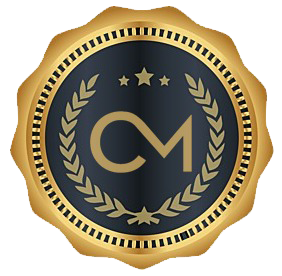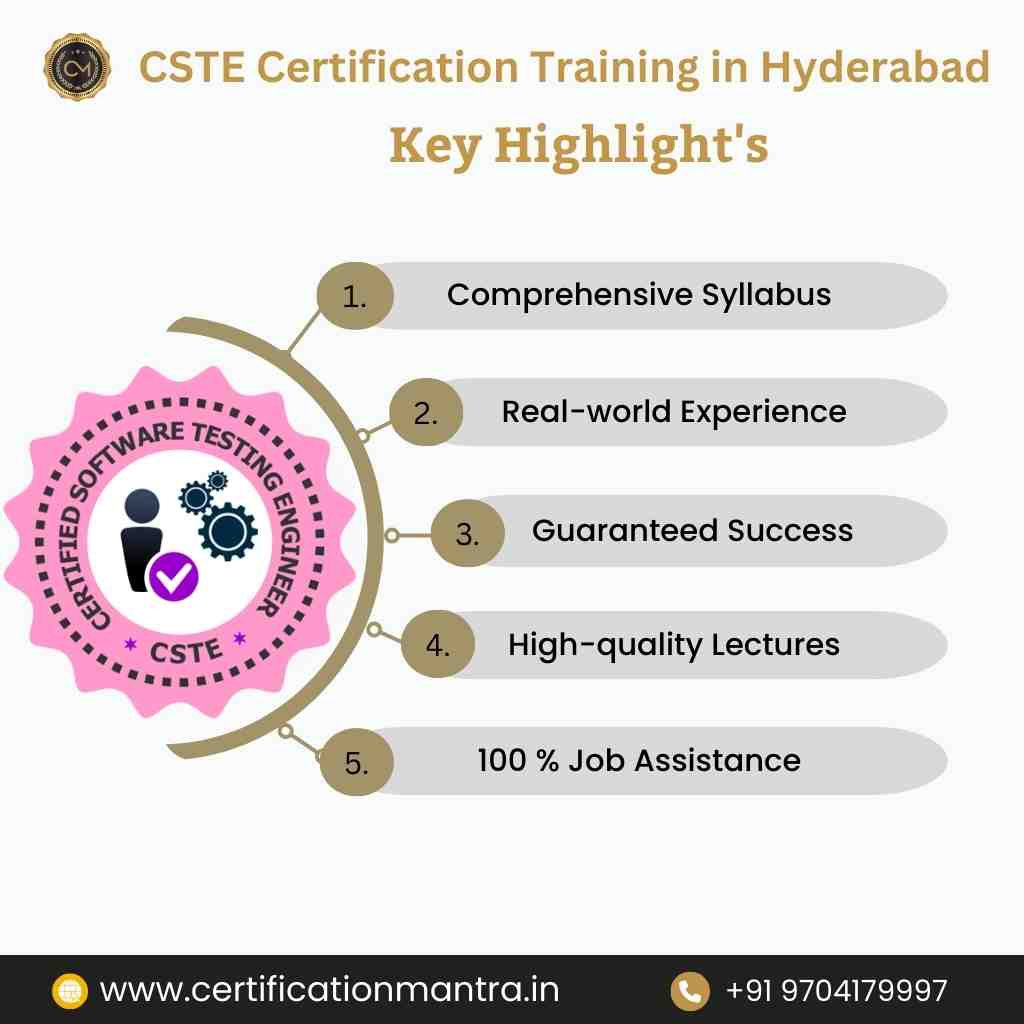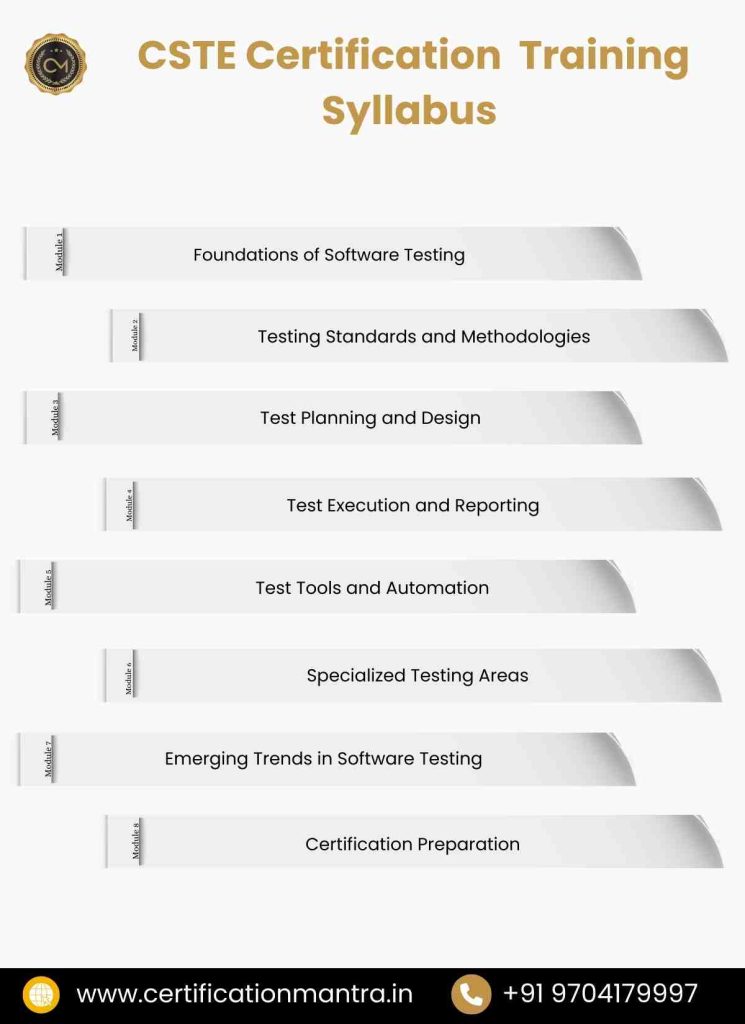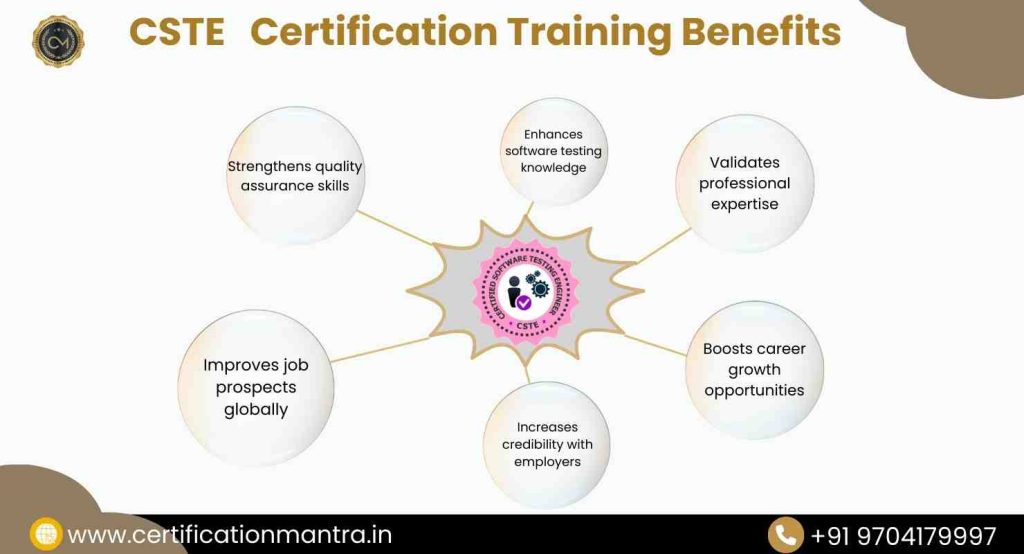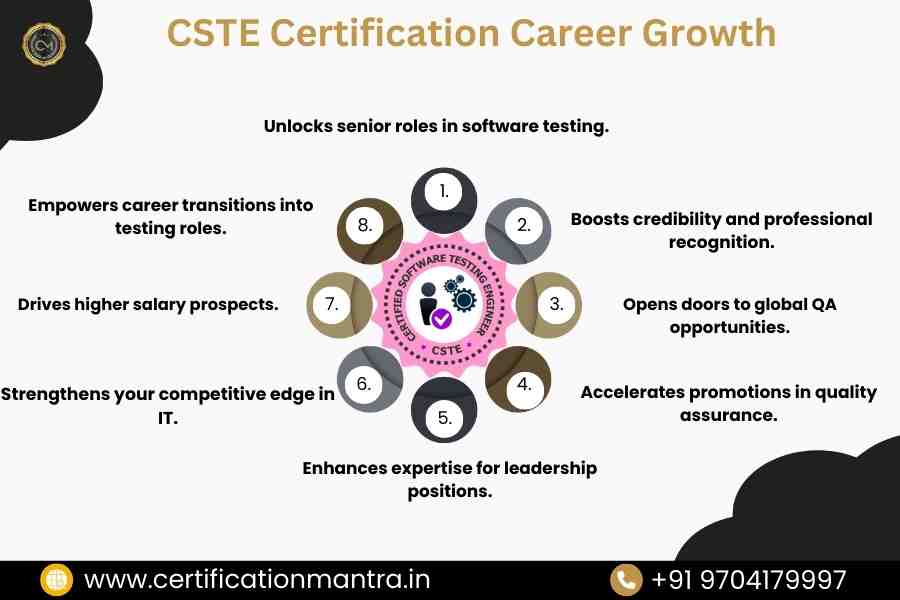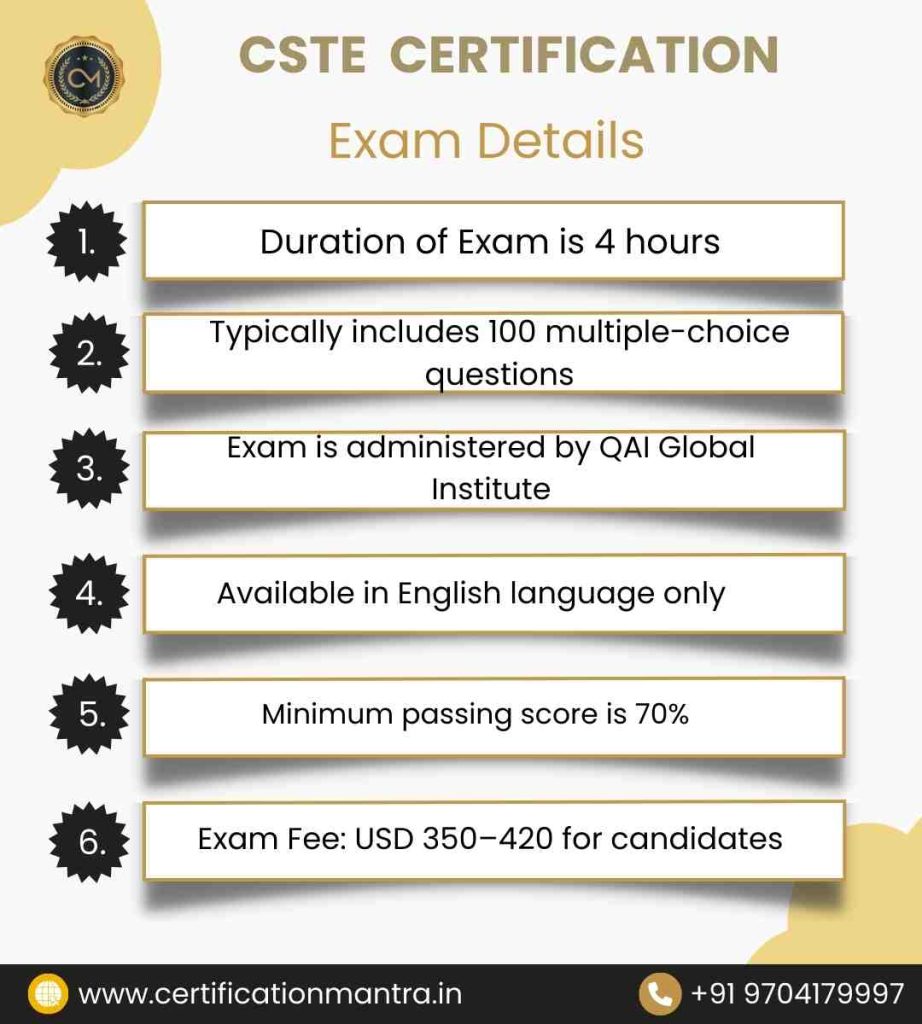Frequently Asked Questions

CSTE stands for Certified Software Test Engineer. It’s an internationally recognized certification that validates your expertise in software testing principles and practices.
The certification is provided by the Quality Assurance Institute (QAI) Global Institute, USA.
It enhances your credibility as a software tester, opens up career advancement opportunities, and demonstrates your commitment to quality assurance.
Professionals with at least 18 months of experience in software testing or those with a strong understanding of the complete testing lifecycle.
A bachelor’s degree is preferred, but relevant work experience can also be considered.
No, there are no mandatory prerequisites. However, familiarity with software testing concepts is beneficial.
While it’s designed for professionals with some experience, motivated freshers with a strong interest in software testing can also benefit from the training.
Institutes like Bhaskar Technologies in Ameerpet and NIIT in Basheerbagh offer CSTE training.
Yes, platforms like ACTE offer online CSTE certification training with flexible schedules.
Training durations vary, but most programs range from a few weeks to a couple of months, depending on the mode and schedule.
The curriculum includes software testing principles, test planning, test case design, defect tracking, and quality assurance processes.
Yes, many training programs incorporate hands-on sessions to enhance practical skills.
Yes, most institutes provide comprehensive study materials, including manuals and practice tests.
Some training centers offer placement assistance to help you secure a job post-certification.
The CSTE exam consists of two parts: multiple-choice questions and short answer/essay questions.
A minimum score of 70% is required to pass the exam.
The CSTE certification is valid for a certain period, after which recertification may be required.
Yes, there is an exam fee, which varies depending on the training provider and package chosen.
Rescheduling policies vary; it’s best to check with the certifying body or training provider for specific guidelines.
Roles include QA Analyst, Software Tester, Test Lead, and Test Consultant.
Certified professionals often have access to better job opportunities and higher salary packages.
Yes, it can enhance your credibility and open doors to senior positions in quality assurance.
Yes, certified professionals can explore freelance opportunities in software testing and quality assurance.
Regular study, practice tests, and understanding the STBOK (Software Testing Body of Knowledge) are key to success.
Yes, many training providers offer sample questions and mock exams to help you prepare.
Some training platforms may offer mobile apps for on-the-go learning and practice.
Yes, online forums and communities can provide valuable insights and support during your preparation.
Occasionally, training centers offer discounts or promotional offers; it’s advisable to inquire directly.
Some training providers offer mentorship programs to guide you through the preparation process.
Registration details are provided by the certifying body or through your training provider.
Typically, calculators are not allowed; however, check the specific exam guidelines for confirmation.
Appeal procedures vary; refer to the certifying body’s policies for information on retaking the exam.
Stay updated with the latest testing practices and consider recertification as required by the certifying body.
